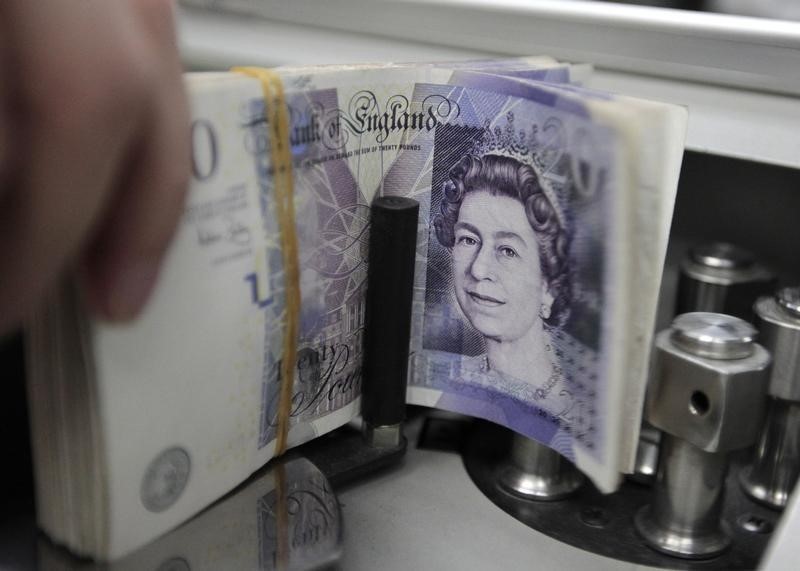By Patrick Graham
LONDON (Reuters) - Sterling steadied just below its highest levels in more than a week against the dollar on Thursday, with a poor reading of the health of the Britain's huge services sector halting a recovery from last week's Brexit-driven sell-off.
After bottoming out at just over $1.38 last week, the pound was trading at $1.4069 in morning trade in Europe, down just 0.1 percent on the day.
The regular survey of service sector purchasing managers showed the headline sentiment index falling to its lowest in three years and pointed to overall first quarter economic growth of just 0.3 percent, which would be the lowest since 2012.
February's PMI was also the first in which managers surveyed cited the June vote over whether to remain in the European Union as a worry.
The numbers were the starkest sign to date that Britain's recovery from the financial crisis is losing momentum, having failed to generate wage and inflation growth to make the Bank of England raise interest rates.
"Sterling has staged a recovery over the past few days," said Andy Scott, an economist at corporate and retail broker HiFX. "(The data) however highlighted the ongoing impact of the uncertainty cause by the EU referendum.
"This week's PMI numbers -- which are usually a reliable indicator of economic activity -- indicate growth may have slowed sharply in the current quarter."
Bank of America (NYSE:BAC) Merrill Lynch strategist Kamal Sharma recommended buying back cautiously into sterling in the short-term, citing an improved global mood and the strength so far of the government-led campaign to remain in the EU.
"April is also traditionally a good month for sterling. Its the start of the new tax year and it is a heavy month for UK corporate dividends," he said.
"Given that the Brexit polls do not seem to be moving and the market-based odds have shortened in favour of staying in, we may see some near-term improvement for sterling."
